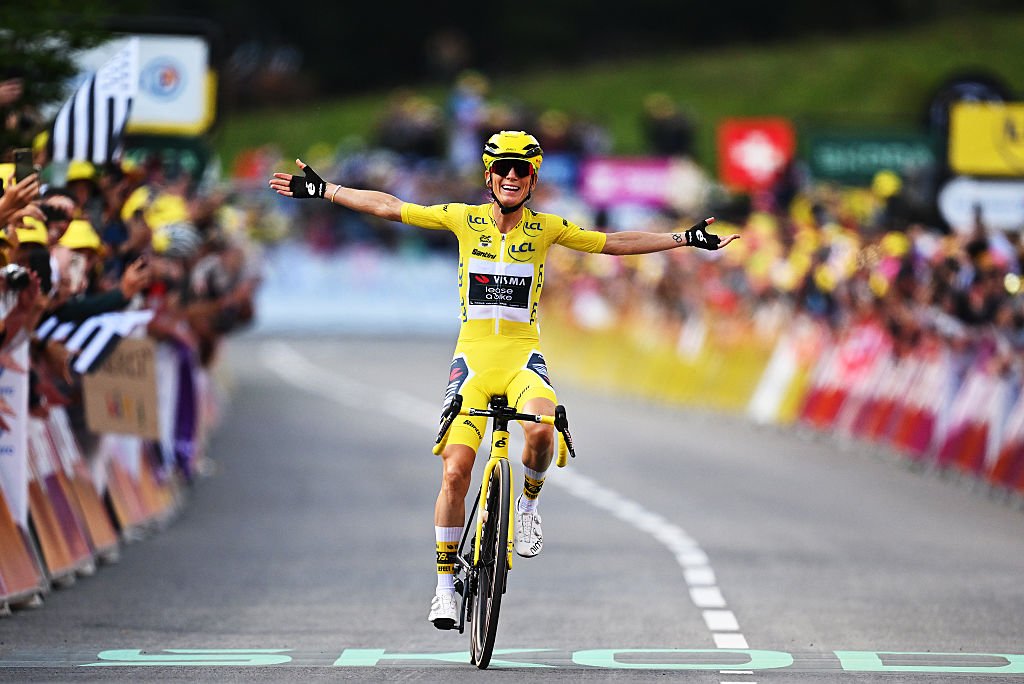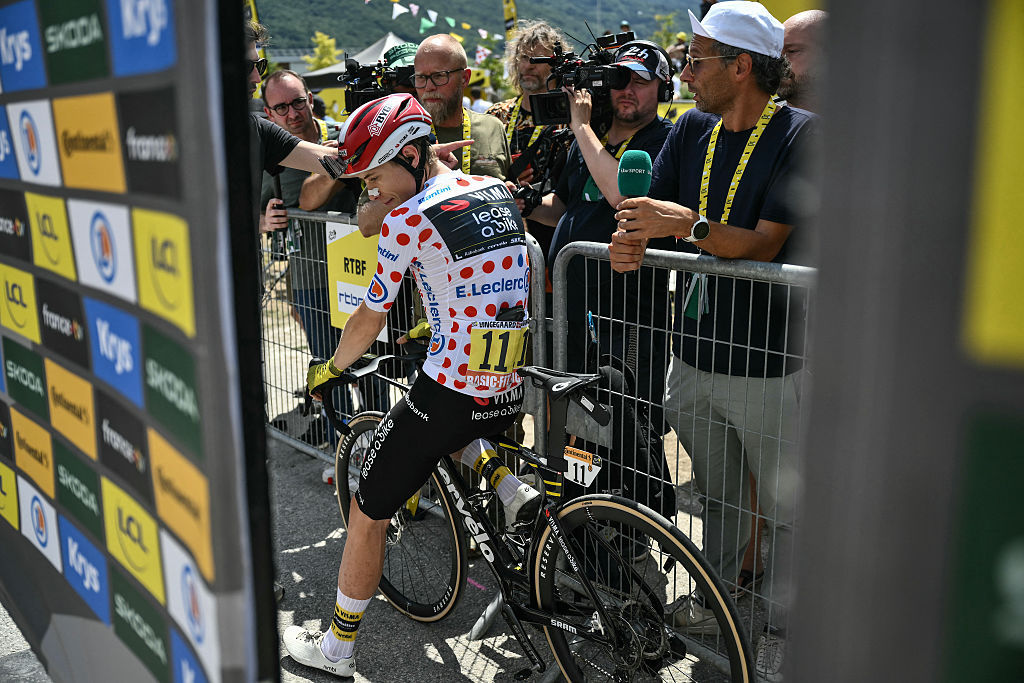'I don't want to win everything because I don't want that pressure' - Pauline Ferrand-Prévot to continue radically limiting goals in 2026 in bid for second Tour de France
French star feels more motivated by bid for second World Championships win in 2027 than trying for repeat Paris-Roubaix victory

The latest race content, interviews, features, reviews and expert buying guides, direct to your inbox!
You are now subscribed
Your newsletter sign-up was successful
When Pauline Ferrand-Prévot confirmed in a recent interview that she will be battling for a second Tour de France Femmes win in 2026, it was hardly surprising: what was much more striking, perhaps, was the French star's explanation of her preferred approach to winning.
Rather than broaden her goals excessively and find herself constantly find herself under pressure to win, the Visma-Lease a Bike star explained in an extensive interview with Ouest-France on Saturday, her favoured strategy was to narrow down her targets to "just one or two a year".
In the same interview, Ferrand-Prévot explained that the Tour is the major objective. However, the spring classics, where she took second in the Tour of Flanders and then won Paris-Roubaix, were by no means forgotten, either.
Looking further into the long term, although her current contract ends in 2027, the 33-year-old said she has no intention of beginning to think about retirement. Rather, she said, "I just want to see how far I can go."
In the short term, regarding 2026 compared to 2025, "I was good in the Classics, but I think I can be better there, and then be good in the Tour," she told Ouest-France.
"I can work really well this winter to try and be at a level not necessarily similar to the Tour, but not that far off, for the Classics, and then be in [top] form for the Tour. That'll be the real objective for 2026."
According to Ferrand-Prévot, focusing on specific goals, rather than trying to win as much as possible, is what really motivates her, meaning that she is not going to overly broaden her objectives.
The latest race content, interviews, features, reviews and expert buying guides, direct to your inbox!
"It's a bit contradictory, but I don't necessarily like competition," she said. "It's not what drives me to ride a bike. Racing every weekend isn't something I particularly appreciate. Mentally, for me, it's too tiring."
"What I really like is to prepare for a specific goal and put everything into place to try and attain it."
"That's why I came back on the road. I had the Tour de France as my objective."
Unlike many pros, Ferrand-Prévot explained that the moments she preferred during the year were when she was "altitude training for months" and she knew what she had to do to be ready for the Tour.
"If I had been told that I had a race program like all my teammates, racing every weekend and travelling, training less, that's not what I'd have liked," she added. "I prefer training. Build myself for one or two objectives in the season, and perform really well there."
Amongst her big goals, she said, were to win Strade Bianche, Flanders and Liège-Bastogne-Liège "one day." The Vuelta a España and the Giro d'Italia, on the other hand, "don't make me dream so much."
On top of that, as she said, the position of the two other Grand Tours in the calendar made it difficult to do them and then be 100% ready for the Tour, whereas it was more compatible with the Classics.
At the same time, a repeat title in the World Championships in 2027, which she last won on the road back in 2014, was more on her radar than a second Paris-Roubaix. The opportunity to win the Worlds on home soil in France in two years was something she felt was very special.
Ferrand-Prévot said her very selective approach to racing was strongly supported by her current team, Visma-Lease a Bike. As she pointed out, Visma men's team leader Jonas Vingegaard's preference for limiting the number of race days in favour of training more was also an accepted in-house strategy.
"Racing for racing's sake isn't interesting for me any more," she told Ouest-France.
"That was the case when I was a pro with Rabobank, or in Canyon-SRAM."
"For me, the Tour is very important, and that's why I chose this team. They gave me the freedom of choice. They know I don't want to race every Sunday and that fits with the team's philosophy."
"I work like that, with [specific] goals. It's what gets me out of bed each morning. I also worry about doing better each day than the last. So even though I'm injured now, I still met up with Richard Plugge (team manager) to see what I can do better."
"I know I won, but I know the others are going to work harder to try and beat me, and we have try to maintain our advantage."
Looking back at the year, she recognised she had needed some time to get on terms with the idea of having won the Tour, but now she was fully focused on doing so again.
"When I woke up the next day [after winning] I felt empty, I cried, I think for two days. It was a dream."
"I was really happy but I was also a bit lost because I didn't know what sense I could give to my career after that, but I think that was also due to the tiredness and emotions."
"Now I see it differently. It's great, I did it once, but doing it twice could be even better."
Alasdair Fotheringham has been reporting on cycling since 1991. He has covered every Tour de France since 1992 bar one, as well as numerous other bike races of all shapes and sizes, ranging from the Olympic Games in 2008 to the now sadly defunct Subida a Urkiola hill climb in Spain. As well as working for Cyclingnews, he has also written for The Independent, The Guardian, ProCycling, The Express and Reuters.
You must confirm your public display name before commenting
Please logout and then login again, you will then be prompted to enter your display name.

